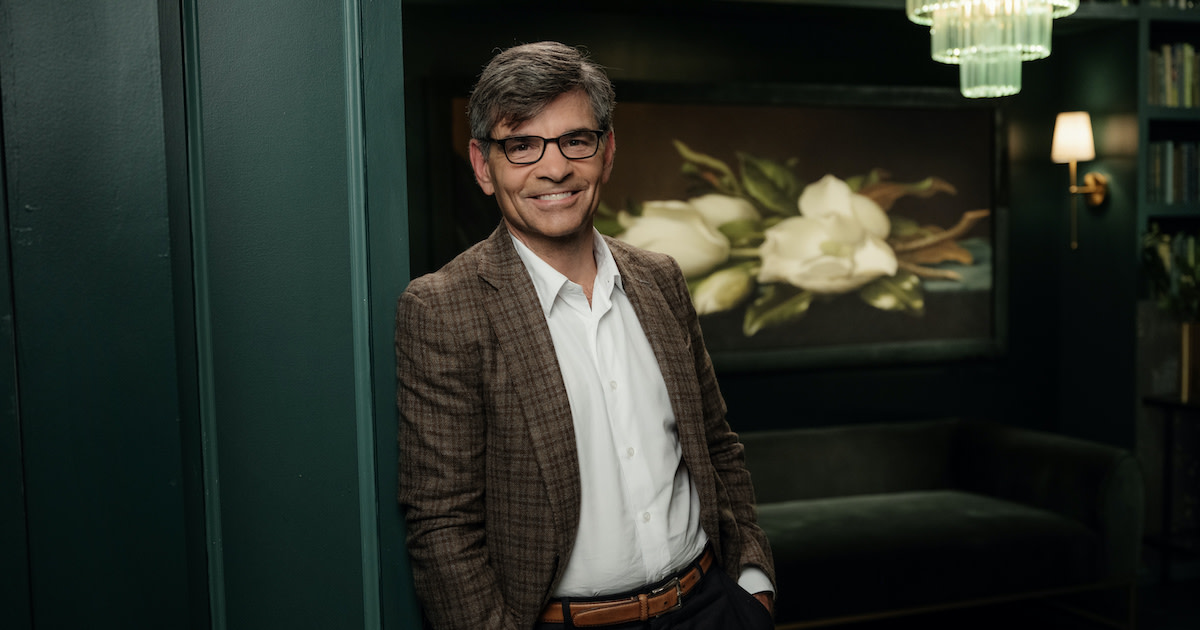George Stephanopoulos’s 4 Tips for Covering Breaking News
Written by MasterClass
Last updated: Jan 24, 2022 • 3 min read
George Stephanopoulos is one of the most trusted and iconic figures in TV news. When it comes to reporting live on breaking news, he recommends communicating with clarity, accuracy, and emotional openness.
Learn From the Best
A Brief Introduction to George Stephanopoulos
Legendary interviewer and broadcaster George Stephanopoulos has navigated challenging interviews for more than 30 years—as former White House communications director and presently as co-anchor of Good Morning America. After serving as deputy campaign manager for Bill Clinton’s US presidential campaign, he became one of President Clinton’s most trusted advisors, specializing in public relations, policy expertise, and crisis management.
George became the host of This Week with ABC News in 2002, starting an eight-year tenure, and in 2009 ABC tapped George to anchor Good Morning America, a role he still holds to this day. In 2014 George became the chief anchor of ABC News. George has interviewed everyone from US Presidents Joe Biden and Donald Trump to famed American actress Meryl Streep—all while covering each day’s breaking news stories.
George Stephanopoulos’s 4 Tips for Covering Breaking News
When covering breaking news, those closest to the action can struggle to provide viewers with accurate information while remaining empathetic, observant, and alert to the crisis unfolding around them. Here are a few broadly applicable tips for communicating when you’re in a new and stressful situation:
- 1. Admit what you don’t know. Misinformation can spread rapidly during a crisis, but the way to combat it is simple: In those moments, George says, being up-front with your audience about all that’s unknown is vital for retaining trust. “Never say more than you know,” George says. “And don’t be afraid to tell the audience, ‘This is all that we know at this time.’” In this situation, admitting ignorance isn’t shameful—it’s admirable. Be honest, up-front, and make sure your audience is aware that you’ll provide more information as soon as you receive it.
- 2. Be a professional. When crisis stories break, the role of a journalist is to provide clarity, analysis, and perspective to viewers living through a collective trauma. George tries to be extremely intentional about himself—but he also trusts his instincts, energy, and adrenaline. Those are the moments “where I literally have no sense of the passage of time,” he says. George has covered events for twelve hours in a row, and found himself utterly immersed in the immediacy of the situation. “That’s where you bring all of your experience as a journalist, as a father, as a former political aide, as a neighbor, as a citi- zen. That’s where you bring all of that to bear in those moments where everyone is experiencing a crisis together.”
- 3. Be a human being. In George’s opinion, transcending the confines of the traditional anchor-subject relationship is key when reporting on events still unfolding. While your instincts might be telling you to find as many facts as possible, he believes that it’s essential to maintain your humanity. “You’re seeing something, you’re experiencing something the same way your viewers are at that moment. You have to be calm. You have to be contained. You have to be controlled,” George says. “But you also have to communicate that you know how difficult this is for so many people. And getting that balance right is the key to the job.” Remaining present with your whole heart can help comfort people in even the most difficult circumstances.
- 4. Focus on key questions. No matter the type of crisis he’s covering, George remains laser-focused on his audience and what they need from him at that moment. Often that means answering fundamental questions like: What are you learning now—and what more can you find out—while taking your audience’s emotional state into consideration? How can you put what you’ve learned into a greater context while also anticipating what your audience is yearning to hear?
Learn More About Journalism
Become a better reporter with the MasterClass Annual Membership. Gain access to exclusive video lessons taught by award-winning journalists and broadcasters, including George Stephanopoulos, Bob Woodward, Robin Roberts, Malcolm Gladwell, and more.
